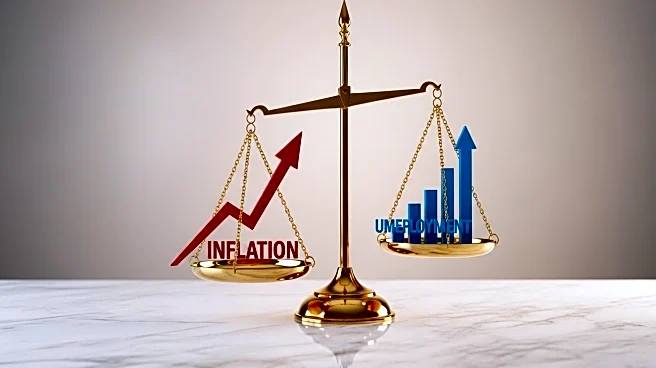What's Happening?
President Trump is confronting significant economic challenges as the midterm congressional elections approach. Consumer prices have risen by 2.9% over the past year, marking the fastest annual pace since January. Key grocery items such as ground beef, eggs, and coffee have seen substantial price increases, with coffee prices up by 21%. The labor market is also under strain, with job growth averaging only 29,000 per month over the past four months. The unemployment rate is expected to rise, according to economists at Goldman Sachs. These economic pressures are reminiscent of the issues that affected Vice President Kamala Harris's presidential bid last fall. A recent Fox News poll indicates that 52% of registered voters believe the Trump administration has worsened the economy.
Why It's Important?
The economic situation poses a significant threat to the Republican Party's hopes of retaining control of Congress in the 2026 elections. Rising inflation and sluggish job growth are key concerns for voters, who have expressed dissatisfaction with President Trump's economic policies, including high tariffs. The economic challenges could impact public sentiment and voter behavior, potentially influencing the outcome of the midterm elections. The administration's ability to address these issues effectively will be crucial in shaping the political landscape and determining the future of the Republican Party's legislative agenda.
What's Next?
The White House anticipates that job growth will improve next year due to new business investments and tax legislation. The Federal Reserve is expected to cut interest rates soon, which could provide some economic relief. However, the administration must navigate the complexities of trade and immigration policies, which have contributed to the current economic challenges. The outcome of these efforts will be closely watched by political leaders, businesses, and voters as the midterm elections draw nearer.









